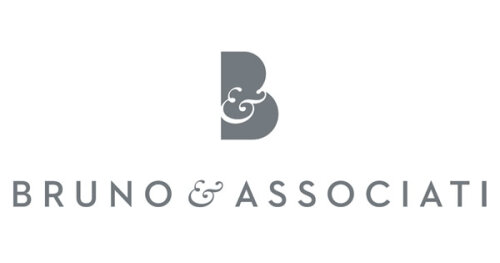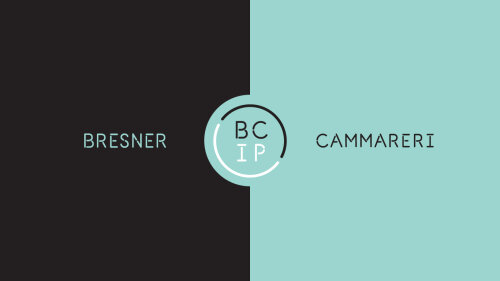Best Communications & Media Law Lawyers in Milan
Share your needs with us, get contacted by law firms.
Free. Takes 2 min.
List of the best lawyers in Milan, Italy
About Communications & Media Law in Milan, Italy
Communications & Media Law in Milan encompasses a wide range of legal issues that impact the broadcasting, telecommunications, print, and digital media sectors. This field of law deals with everything from freedom of expression, media regulation, and copyright issues to advertising standards and privacy concerns. With Milan being a major media hub in Italy, the city is home to a vibrant communications sector that is shaped by both local and EU regulations. As a result, understanding the intricate legal landscape is crucial for media companies, advertisers, and individuals alike.
Why You May Need a Lawyer
Individuals and businesses may seek legal advice in Communications & Media Law for various reasons, including:
- Conflict over copyright and intellectual property claims.
- Legal disputes involving defamation or libel in publications or broadcasts.
- Compliance with advertising standards and regulatory requirements.
- Privacy and data protection issues, particularly in digital media.
- Licensing and contractual agreements within the telecommunications sector.
- Governmental inquiries or regulatory inspections into broadcasting standards.
Local Laws Overview
In Milan, Communications & Media Law is influenced by a combination of Italian national laws and European Union directives. Key aspects include:
- Privacy Laws: The GDPR significantly impacts how media organizations handle personal data.
- Civil Code: Intellectual property rights and their enforcement are derived from various national statutes.
- Defamation Laws: Protections against defamation are rooted in Italian law and are particularly stringent on public broadcasts.
- Telecommunications Regulations: The Italian Communications Regulatory Authority (AGCOM) oversees telecommunications, ensuring compliance and fair competition.
- Advertising Standards: Strict guidelines help maintain integrity and transparency in advertising campaigns.
Frequently Asked Questions
What governs media content regulation in Italy?
Media content regulation in Italy is governed by a combination of the Italian Constitution, civil code, and EU directives, with oversight by bodies such as AGCOM.
How does GDPR affect media companies in Milan?
GDPR mandates stringent data protection measures in media companies, necessitating compliance with data handling and privacy standards.
What are the consequences of violating advertising laws?
Violations can lead to significant fines, legal injunctions, and reputational damage for businesses failing to meet advertising standards.
How is intellectual property protected in the media industry?
Intellectual property is protected under national laws, including copyrights and patents, with enforcement through civil and criminal courts.
What legal recourse is available for defamation in publications?
Italian law provides for civil action and criminal penalties against defamation, allowing individuals to seek compensation for damages.
Are there specific laws for digital content in Italy?
Yes, laws such as e-commerce and digital services regulations specifically address digital content distribution and liabilities in Italy.
Can I challenge regulatory decisions by AGCOM?
Yes, decisions by AGCOM can be challenged through administrative courts for review and potential reversal.
What licensing is required for a new telecommunications service?
Starting a telecommunications service requires obtaining specific licenses from AGCOM and ensuring compliance with technical and legal standards.
How does Italian law address libel on social media?
The same principles of defamation apply, with individuals able to seek legal recourse for libelous statements made on social media platforms.
What should I do if my intellectual property rights are infringed?
Seek immediate legal assistance to issue cease-and-desist orders and potentially initiate legal proceedings to protect your rights.
Additional Resources
- AGCOM (Italian Communications Regulatory Authority): Offers guidance on broadcasting and telecommunications regulations.
- Ministry of Economic Development: Provides information on media laws and enforcement.
- European Union Directives: For directives affecting Italy’s media law framework.
- Chambers of Commerce in Milan: Often hosts seminars and workshops on media and communication law.
Next Steps
If you need legal assistance in Communications & Media Law in Milan, consider these steps:
- Research and identify lawyers or law firms specializing in media law.
- Schedule consultations to discuss your specific legal needs and understand the lawyer’s experience in the field.
- Prepare all relevant documentation and information for your legal case.
- Explore alternative resolution options, such as mediation or arbitration, if applicable.
- Stay informed about ongoing changes in local and EU laws affecting communications and media.
Lawzana helps you find the best lawyers and law firms in Milan through a curated and pre-screened list of qualified legal professionals. Our platform offers rankings and detailed profiles of attorneys and law firms, allowing you to compare based on practice areas, including Communications & Media Law, experience, and client feedback.
Each profile includes a description of the firm's areas of practice, client reviews, team members and partners, year of establishment, spoken languages, office locations, contact information, social media presence, and any published articles or resources. Most firms on our platform speak English and are experienced in both local and international legal matters.
Get a quote from top-rated law firms in Milan, Italy — quickly, securely, and without unnecessary hassle.
Disclaimer:
The information provided on this page is for general informational purposes only and does not constitute legal advice. While we strive to ensure the accuracy and relevance of the content, legal information may change over time, and interpretations of the law can vary. You should always consult with a qualified legal professional for advice specific to your situation.
We disclaim all liability for actions taken or not taken based on the content of this page. If you believe any information is incorrect or outdated, please contact us, and we will review and update it where appropriate.















